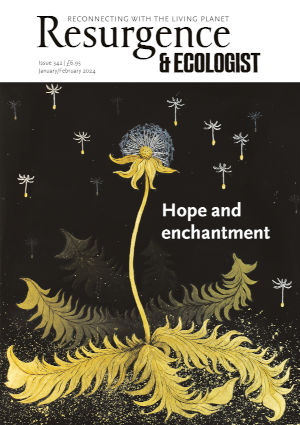What an author thinks their book is about and what it says often diverge. That’s the case with Lynne Segal’s new short volume, Lean on Me: A Politics of Radical Care. Ostensibly about ‘care’, it is more usefully understood as a book about Segal’s impressive political activism and scholarship over the past 50 years, and how she has sought to improve the human condition. Short passages of memoir introduce us to a young Segal, then living in Australia, observing the acrimoniously gendered relationship of her parents. On finding herself unexpectedly pregnant at the age of 25, she struck out to forge a better life for herself, emigrating to the UK and embedding herself in 1970s feminist socialism. The life she describes is enviable: she lived communally in a large house with other single mothers while nurturing the academic career that would make her a grandee of socialist scholarship, alongside an array of feminist projects, including co-founding the Essex Road Women’s Centre as a space for women to gather and organise.
What the book lacks in coherence – chapters range from mothering and education to a retrospective of Segal’s experiences in the feminist movement, and then on to our physical vulnerabilities, ecosystem collapse, migration politics, and more, loosely tied together by a nebulous notion of ‘care’ – it makes up for with a treasure trove of insight and inspiration from Segal’s decades at the forefront of radical politics. She is deft at providing potted histories of each of the topics she selects, and we travel with her from the exciting radical potential of the 1970s through a series of calamitous political shifts: Margaret Thatcher’s assaults on the welfare state, capitalism’s co-optation of feminism into a narrative of material ambition, the marketisation of education, and so on.
But if, as Segal writes, “the panorama could hardly be grimmer,” she manages to imbue the book with welcome hope. Much of this hope seems to come from the activist spaces in which she has spent so much of her life. She draws particular attention to the mutual aid groups that mushroomed during the Covid-19 lockdowns, to Black feminist abolitionism that advocates for an end to prisons and policing, and to a roll-call of academics, politicians and activists, including Jeremy Corbyn, Alexandria Ocasio-Cortez and Naomi Klein. “It seems clear,” she writes in the final chapter, “that more people than ever are coming to see that we can only ensure human survival once we start to place care and concern for each other at the heart of our politics, and the centre of our lives.”
But does it seem clear? Lean on Me has been published during a time of rising fascism, both in the UK and globally. It seems horribly unclear whether we are venturing anywhere closer to a more just, more caring future. Having spent large sections of the book explaining what’s gone wrong with her selected themes, it seems odd for Segal then to pronounce that a new and better dawn is coming. Relatedly, many of the harms she describes – from border violence to austerity cuts – have been perpetrated by governments. And yet her policy prescriptions all appear to rely on the state as a benevolent force – one that will introduce “a fairer tax system”, “universal care”, and so on. For someone so erudite and experienced in the vagaries of politics, this cannot be accident or naivety. Rather, it seems that Segal is channelling the wisdom of her own inspiration, the now deceased Barbara Ehrenreich, whom she quotes: “The idea is not that we will win in our own lifetimes and that’s the measure of us, but that we will die trying.”
Lean on Me acts as an education in this radical hope, in the refusal to give up, and in the necessary perseverance of the activist spirit.
Lean on Me: A Politics of Radical Care by Lynne Segal. Verso, 2023. ISBN: 9781804292945.







